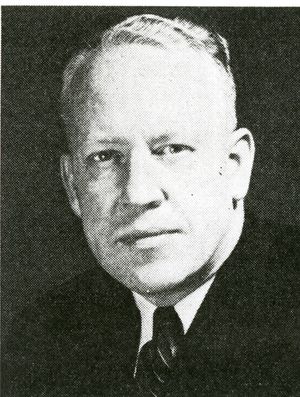S. W. Seeley
- Birthdate
- 1901/06/23
- Birthplace
- Chicago, IL, USA
- Death date
- 1978/11/04
- Associated organizations
- General Electric (GE), Sparks Withington, RCA (Radio Corporation of America)
- Fields of study
- Radio
- Awards
- Morris N. Liebmann Memorial Award
Biography
Stuart William Seeley was an American electrical engineer who was best known for co-inventing the Foster-Seeley discriminator and the Short Range Navigation system, or SHORAN.
Seeley was born on June 23, 1901 in Chicago. He began working as a commercial operator and experimenting with radio technology as an amateur in 1915. Seeley continued with this until he graduated in 1925 with his bachelor's degree in electrical engineering from Michigan State College. Between 1925 and 1935 Seeley worked for General Electric (1925-1926) and Sparks Withington (1926-1935). He joined the RCA License Laboratory in 1935.
In 1936, Seeley and D.E. Foster worked together to invent the Foster-Seeley discriminator, an FM detector circuit. This invention decreased the price of FM radio receivers to a cost comparable to AM radio receivers. In 1938, Seeley began working with an experimental television system. In his attempts to get rid of "ghost" signals, he discovered that he could use time differences in radio reception to calculate distance. This research led to his proposal to build SHORAN, a bombing navigation system for the US military, in 1940. Nine months after the proposal, he received a contract to build and the system underwent its first military flight tests in August 1942. SHORAN's first combat operations took place in northern Italy on December 11, 1944.
Seeley received the 1948 IEEE Morris N. Liebmann Memorial Award "for his development of ingenious circuits related to frequency modulation." In 1960 he received the Magellanic Premium from the American Philosophical Society for his invention of SHORAN. Seeley died on November 4, 1978.
